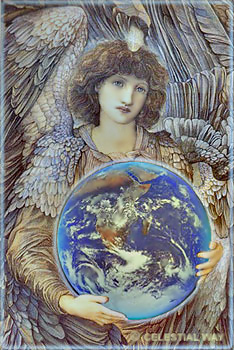 Many / One
Many / One
A database of 11,000+ illuminated guiding quotations in 40 categories from 600+ inspired books by our most brilliant and influential authors.
Compiled by JoAnn Kite
SHOW detailed search and navigation | Quotes | References | JoAnn
One
|
Circle
|
Center
|
Opposites
|
Archetypes
|
Good
|
Ethics
|
Living Wholeness
|
Random
The Mystery Religions and Christianity
Samuel Angus
A study of the Mystery religions and the background of early Christianity.
Samuel Angus
A study of the Mystery religions and the background of early Christianity.
| 1 | "The spiritual interpenetrates and unites all things." | |
| 2 | "We can think of nothing which is not either immediately deity or a manifestation of deity. In point of essence God and the World are therefore the same….The same universal Being is called God when it is regarded as a whole, World when it is regarded as progressive in one of the many forms assumed in the course of development." Cornutus, 'Compendium of Greek Theology' | |
| 3 | "The Mystery Religions still have a message to deliver in their basic assumption that salvation is, in the last resort, a do-it-yourself process; that spiritual death is not an external visitation, nor spiritual resurrection an external deliverance; that both are states of being under our own control, occasioned by our own efforts and attitudes." | |
| 4 | "The cosmos, so far from being a chaos, is on deeper knowledge perceived to be a soul-permeated magnitude. It was an image of God as was also man (in ancient thought). God is in all and through all, and by a knowledge of the All one attains to the knowledge of God, whose nature is revealed in the mysteries of creation, generation, decay, rebirth, universal law. Stoic monism was emphatic on the unity of things. God was conceived as the World, or again as the spiritual element or vital fire of the World." | |
| 5 | "There is only one River of Truth, into which tributaries from all parts flow." | |
| 6 | "The most holy and potent of all knowledge is Love." Clement of Alexandria | |
| 7 | "Deity is one and all are manifestations of the One." | |
| 8 | "In the 'Timaeus' Plato discovered evidence of an ordering Mind in all things, and Aristotle emphasized the fact that all formed a rational whole interpenetrated by reason and unveiling its secrets to reason." | |
| 9 | "Enter Thou into my spirit and my thoughts my whole life long, for Thou art I and I am Thou; Thy name I guard as a charm in my heart." 'Papyri Graeci Musei Ludg.', II. 141 | |
| 10 | "Through the course of the [ancient] Greek religious thought a single thread may be traced, in the essential unity of man and God." | |
| 11 | "Common to all the Mysteries was the faith in communion, or identification with God." | |
| 12 | "If anyone knows himself he shall know God." Clement of Alexandria | |
| 13 | "The world possesses a soul holding it together, and this soul is designated God, primordially and ever living and the source of all life." Cornutis, 'Compendium of Greek Theology' | |
| 14 | "Let all Nature hear the Hymn…let every bar of the Abyss be opened…I will hymn the Lord of Creation, the All and One…let the immortal Cycle of God receive my praise…Let us all together give praise to him….powers of mine, hymn the One and All…Your own Word through me hymns You." 'The Hymn of Regeneration', Corpus Hermeticum | |
| 15 | "For Thou art I, and I am Thou; Thy name is mine, for I am Thy image (eidolon)." Hermetic fragment | |
| 16 | "The natural is but the manifestation of the divine, and through the contemplation of material objects…the soul may be elevated toward God." | |
| 17 | "As a result of immanent unity there is a natural correspondence, or 'sympathy' among all things." | |
| 18 | "Through the ages one increasing purpose runs, and the march of mankind is Godward." | |
| 19 | "The ancients lived in a world in which the primitive association of man's life with the earth and plant and animal life was axiomatic, in which…the Universe itself was a rational living being, in which man by his good deeds might be elevated to a..stage on the path to divinization. This comprehensive cosmic consciousness made what Emerson calls 'the linked purpose of the whole' the object both of speculative and religious thought, which derived from this universal kinship the postulate that like is apprehended by like in a harmony in which Plato said that God Himself 'geometrizes'. | |
This body of quotes compiled by
JoAnn Kite
